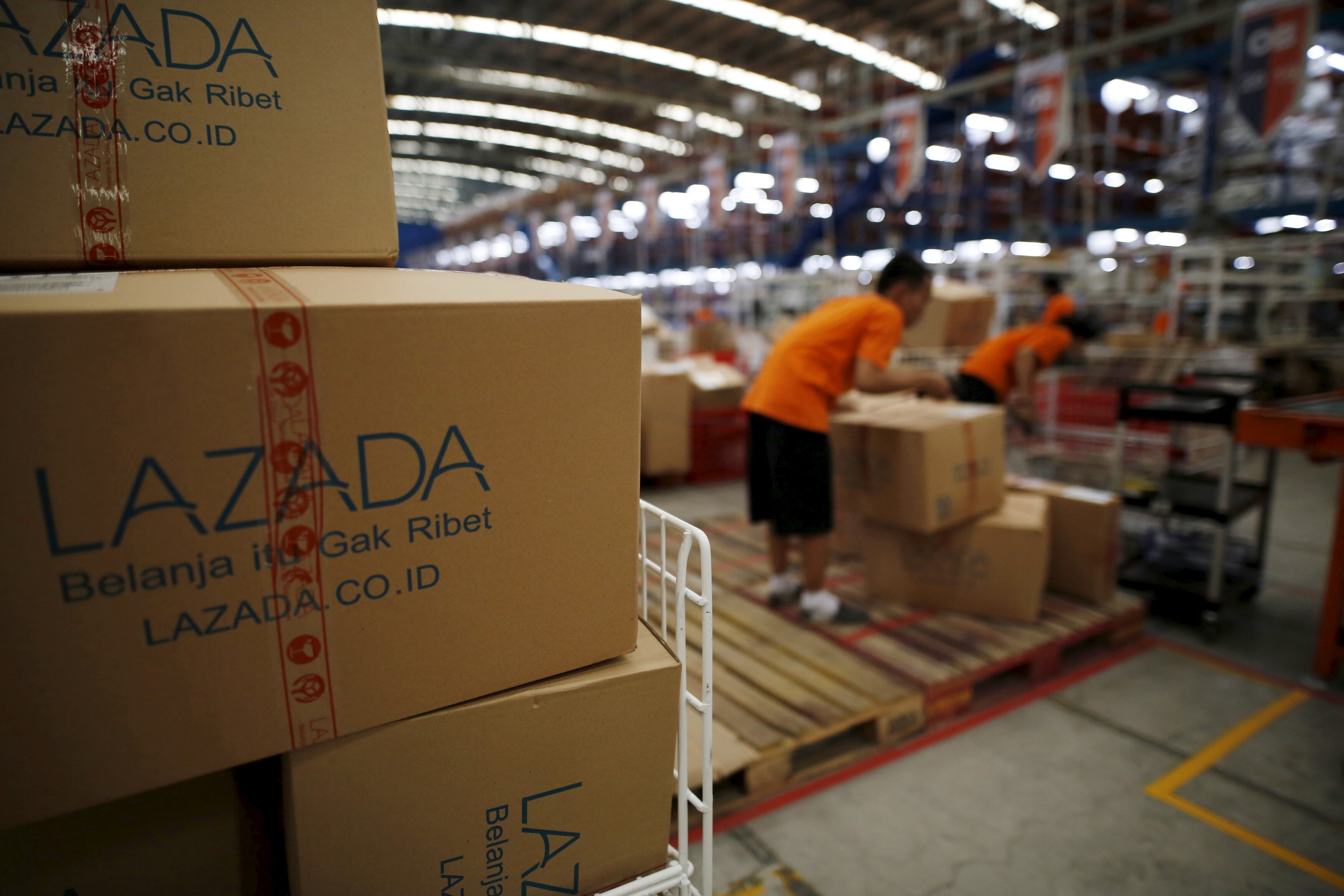This is why you need to know about trade finance

Trade finance could help entrepreneurs, but access is a challenge Image: REUTERS/Aly Song
Protectionists and trade-sceptics don’t panic: this is not another trade deal.
Nobody would disagree that “trade finance” sounds more like a deadly combo than a recipe for miracles, but it is actually the lifeblood of most cross-border business transactions. As part of these, exporters require due payment for the goods and services they’re selling and importers need a guarantee that they will be satisfied with the delivery and status of the purchased goods and services.
But why should anyone care about trade finance? The simple answer is trade finance creates opportunities for everyone, which is good news in a world where trade benefits are not shared evenly. If you ever decide to create your own enterprise and distribute your product abroad or you just simply want to access a wider range of products, you should care about trade finance.
Put yourself in the shoes of a Burmese entrepreneur who wants to export hand-crafted textiles from Rangoon. You would need some sort of financing to support your activities. The first challenge is that your local bank is unable to provide that financing or can only do so at a very high cost. Challenge number two is the current regulation, which is outdated and prohibits all sorts of useful actions, such as receiving cash in advance upon reception of your product. Then there’s the issue that larger firms can afford to do this, but you can’t. Faced with so many challenges, you might be better off pursuing a different passion - that is, unless you use trade finance.
We are talking about a financing mechanism that is essential to bridge the time lag between a product’s shipment from one market and its arrival and inspection in another. Reducing this delay helps build trust and minimizes many of the risks arising from such complex transactions, such as a lack of timely payment, exchange rates and the deterioration or loss of goods and services.
Trade finance likes to manifest itself in the form of letters of credit, guarantees or insurance and is usually provided by intermediaries, such as banks or financial institutions. One of its most current forms involves bank-to-bank transactions, where one bank provides an account and related services to another in a relationship is called correspondent banking.
According to an Asian Development Bank Institute paper, adequate and reliable trade finance creates exports opportunities: “[I]t enables firms which would otherwise be considered too risky, to link into expanding global value chains and thus contribute to employment and productivity growth”. Trade is no longer just for the big boys.
All of this seems quite straightforward but getting access to trade finance is another story.
The financial crisis and a series of market-disrupting events, such as terrorist incidents, have contributed to tightened regulations and prompted banks to undertake enhanced financial controls, due diligence requirements and risk assessments. The increasing compliance costs and the inherent risks involved in cross-border trade, coupled with an ever-changing landscape of regulations has caused the cessation of many trade finance activities, including corresponding banking relationships.
The lack of access to trade finance for emerging and developing economies has certainly been one of the major consequences of this regulatory rollercoaster.
Businesses around the world – particularly SMEs – often cite a lack of access to trade finance as a major barrier to their capacity to expand or intensify their international trade activities. It also represents one of the three factors that most hinders exports, affecting the possibility of linking or moving up the value chain and become more competitive.
Surveys by the International Monetary Fund (2016), World Bank (2015), and the Association of Supervisors of Banks of the Americas (2015) indicate that countries in Africa, the Caribbean, Central Asia and Europe have been hardest hit.
But this situation will not last. A recently published joint World Economic Forum-New Markets Lab white paper, which echoes the policy recommendations issued by the E15 Initiative Group on Trade, Finance and Development, suggests a series of bottom-up, development-oriented measures to strengthen local (respondent) banks’ regulatory and due diligence capacities and establish dialogues at an institutional level that take into account the needs of local stakeholders.
An additional, but unusual, recommendation set forth by this paper proposes knocking on technology’s door. Innovation in the provision of financial services through advanced technology gained major attention a few years ago when it was seen as a threat to major banks around. It hasn’t yet lived up to its potential, but is it now the time for it to rise and shine?
As stated in the ICC Banking Commission Report 2017: “It has become clear that FinTech, and the digitization of trade based finance are no longer just phrases or buzzwords.” In summary, be prepared to familiarize yourself with terms such as smart contracts, robo-advisors, cryptocurrency, blockchain, cross-border remittance apps, RegTech and InsurTech because you will have to use them in your daily vocabulary - and master them.
A member of the FinTech family, Blockchain, or distributed ledger technology, is currently receiving the most attention and is often praised, but less often understood. For those who feel brave, an interesting description can be found here and for the rest, this user-friendly TEDx presentation will help demystify this concept for you.
How is this going to work in practice? FinTech solutions could potentially solve some of the transparency and risk-related processes and transaction costs, as well as fees, associated with banks’ due diligence checks by providing trusted platforms to connect seekers and providers of funding, rather than piles of paperwork.
The good news is that some initiatives are emerging. For example, some FinTech firms in the US and Singapore are starting to offer web-based platforms allowing users to post assets for distribution, negotiate deals, and manage supporting documentation.
FinTech solutions could finally find their niche in the finance sector and kill two birds with one stone. On the one hand, they could allow for the development of innovative start-ups that have been in the shadows for too long while creating new opportunities to link up with markets; on the other hand, they could offer an easier and cheaper way to access finance through a user-friendly platform that’s accessible by phone. Our Burmese entrepreneur would certainly find it easier to buy a phone than to open a bank account.
Now take off your rose-tinted glasses for a minute and feel that bittersweet taste in your mouth. Every joy has a dark side. Given the nascent nature of FinTech, regulatory frameworks are still uncertain and concerns related to intellectual property and data protection are yet to emerge. This may prevent some companies from adopting these solutions and being able to see the benefits, which include security, risk and cost reductions, and speed, to name but a few.
Don't miss any update on this topic
Create a free account and access your personalized content collection with our latest publications and analyses.
License and Republishing
World Economic Forum articles may be republished in accordance with the Creative Commons Attribution-NonCommercial-NoDerivatives 4.0 International Public License, and in accordance with our Terms of Use.
The views expressed in this article are those of the author alone and not the World Economic Forum.
Stay up to date:
Trade and Investment
Forum Stories newsletter
Bringing you weekly curated insights and analysis on the global issues that matter.








